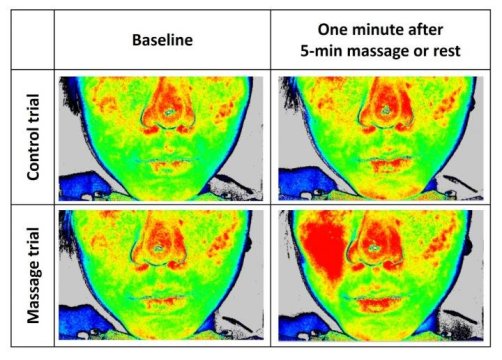Facial massaging using a roller can increase skin blood flow for more than ten minutes after the massage. It can also improve vasodilation — the widening of blood vessels, — in the long-term, according to a study by researchers in Japan. Beauty experts rave about them, and millions of us buy them, but what do scientists make of face massage rollers? Few studies have so far investigated the effects of using facial massage rollers over time. To address this gap, Naoyuki Hayashi of the Institute for Liberal Arts, Tokyo Institute…
Read MoreCategory: Skincare
The alchemy of healing: Researchers turn open wounds into skin
Plastic surgery to treat large cutaneous ulcers, including those seen in people with severe burns, bedsores or chronic diseases such as diabetes, may someday be a thing of the past. Scientists at the Salk Institute have developed a technique to directly convert the cells in an open wound into new skin cells. The approach relies on reprogramming the cells to a stem-cell-like state and could be useful for healing skin damage, countering the effects of aging and helping us to better understand skin cancer. “Our observations constitute an initial proof…
Read MoreA fully human system to cultivate skin cells for grafting
Breakthrough research to culture human skin cells called keratinocytes to produce skin grafts has been published by a team of researchers from Duke-NUS Medical School and the Singapore General Hospital (SGH). This method is the first to use a specific type of tissue-proteins known as laminins, found in the human body, to create a safer treatment for severe burns or other skin-related defects. For over four decades, skin keratinocytes have been cultivated using a combined human-animal culture system. From a clinical application standpoint, this approach exposes patients to the potential…
Read MoreSkin diseases are more common than we think
Skin diseases are ranked as the fourth most common cause of human illness, but many affected people do not consult a physician. A new Journal of the European Academy of Dermatology and Venereology study estimates the prevalence of skin diseases outside the typical medical setting. To include people who never or rarely seek medical aid, the study did not rely on health insurance data, but rather on data collected at the Munich Oktoberfest in Germany. Screening examinations were performed randomly on participating visitors. Of the 2,701 individuals in the study, at least…
Read MoreNew potential approach to treat atopic dermatitis
How does the immune system respond to fungi on our skin? Researchers at the University of Zurich have demonstrated that the same immune cells that protect us against skin fungi also encourage the inflammatory symptoms of atopic dermatitis. An antibody therapy could alleviate this chronic inflammatory skin disease. The skin of humans and animals is densely populated by fungi. It is suspected that a small yeast species called Malassezia, which besides bacteria and viruses is part of the microflora of healthy skin, strengthens the body’s defenses and prepares the immune…
Read More
